Description
Modafinil (Modalert 200) is an arousal agent. Used to staying awake, being better focused and working better, modafinil has also been considered a very effective cognitive enhancer that improves decision-making power. It is believed to work by acting on certain brain chemicals that control the sleep / wake cycle and has been shown to improve wakefulness, attention span and alertness.
First approved for excessive sleepiness caused by narcolepsy in 1998, the drug is now often prescribed off-label for a range of conditions from depression to multiple sclerosis. Some researchers say it could also be used successfully to treat attention deficit hyperactivity disorder (ADHD). Although this has not yet been proven.
Approved by the US Food and Drug Administration (FDA) for the treatment of narcolepsy, it is sold under various brand names and is classified as a Schedule IV substance. This means it has a relatively low potential for abuse (as opposed to Schedule I, II and III drugs). While researchers are still not sure how modafinil impacts the brain, it seems that more and more people are asking their doctors to prescribe the drug to enhance and enhance their cognitive performance. This places it firmly in the realm of a contemporary "smart drug" and its popularity as such is on the rise.
In fact, in August of this year (2015), British researchers published the first overview of the effects of modafinil on non-sleep deprived people in seven years. They concluded that modafinil may be "the first well-validated pharmaceutical nootropic agent" – making it the first "real example" of a smart drug that can really help with exam preparation and similar tasks.
Effects of Modafinil
Dubbed "fashion," modafinil has become a smart drug of choice for students who take it to stay awake and focused, and to be able to work better – even though it is not licensed for this use, and is often obtained illegally. , without a prescription.
While it is not yet fully understood how the drug works in the brain, users and researchers report that it improves attention, executive function, memory and learning, and even creativity. It is often compared to stimulants such as Ritalin and Adderall which are both amphetamines II for the treatment of ADHD. Both generally produce a sense of euphoria and are often used by healthy individuals to improve focus and focus when studying or working on large projects. However, while Ritalin and Adderall are stimulants that increase the levels of norepinephrine and dopamine in the brain, modafinil appears to slow the brain down by decreasing gamma-aminobutyric acid. Ironically this produces a stimulating effect, but does not produce any sense of euphoria.
The recent British study above and below states that modafinil is a "eugeroic" (a drug that improves insomnia and makes you even more alert) that directly increases cortical levels of catecholamine in the brain and other internal organs. In addition, indirectly: (1) it has the effect of "upregulating" brain serotonin, orexin, glutamate and even histamine levels and (2) decreases the levels of cerebral gamma-amino-butyric acid.
Titled Modafinil for Cognitive Neuronhancement in Healthy Non Sleep Asleep Subjects: A Systematic Review, the study was undertaken by Dr Ruairidh McLennan Battleday and Dr Anna-Katharine Brem of the Department of Experimental Psychology at the British University of Oxford .
Recognizing that it is widely used "out of prescription" for cognitive enhancement purposes, the two researchers say the desire to improve executive function is the primary goal of many users. More specifically, they claim that users find that they are able to select and manipulate information and use it to exclude irrelevant information and focus on what is needed, starting and building complex action plans.
User experience
A growing number of students who need to learn very quickly swear by modafinil, saying it gives them the ability to work harder, longer. Various experiences were shared. One user who takes the drug five days a week when studying says it makes him "feel like a well-oiled machine" for about five hours. Another says he finds he can type much faster. One claims that his brain is at "ninja level". Others say they take it because their level of concentration improves dramatically and this translates into good exam results.
Research into the effects of Modafinil
Since its appearance on the medical market, modafinil has been recognized as a drug that will enhance "cognitive performance" in normal, young and healthy people who have been deprived of sleep. This has led to a considerable number of research studies aimed at learning more about its effects on learning, knowledge acquisition and understanding in general. While the results vary, studies generally claim that modafinil improves cognitive and meta-cognitive performance.
The first studies showed that modafinil had a similar clinical profile to several conventional stimulants, including methylphenidate, a synthetic drug used to improve mental activity in people with ADHD. This has led to the school of thought that modafinil could also be used to treat ADHD.
A first British study, published in 2002, evaluated this idea using a number of neuropsychological tests on 60 young and healthy men. Participants had to take 100 mg or 200 mg doses of modafinil before performing specific tests to test memory and attention. The results confirmed the results of previous studies.
Another British study had quite different results and showed that when given rather large single doses (300mg) to healthy, sleep-deprived adult subjects, they tended to overestimate their cognitive abilities and become confident. A Canadian research study published in 2004 focused on this finding in their own study and found that the trend was not significant. Rather, modafinil improved not only fatigue levels, but reaction times, alertness and motivation as well.
A British study published in 2003 reported several results, stating that rather than affecting cognitive function, modafinil had a greater impact on mood. Like the Canadian study, these researchers looked at adults who weren't sleep deprived but gave very low doses of modafinil (100mg and 200mg) and also found that mood (including anxiety and l aggression) was unaffected, particularly when smaller doses were given.
Another study published in 2004 also involved middle-aged people (aged 50 to 67) who were not sleep deprived. Interestingly, there was not much evidence of increased cognitive performance, suggesting that it is a smart drug that is more effective at a much younger age.
Yet another British study published in 2005 found that the cognitive effects of modafinil may depend on the user's IQ. The researchers ran a series of tests on healthy college student volunteers two to three hours after taking the drug, and found that generally sustained attention was improved in terms of speed and alertness. However, they found that some responses were slower in students who tested "low" IQ and that the brightest students benefited. They also concluded that modafinil prevented sleepiness was an important factor.
Another published the same year (2005) was inconclusive, with the results shown by 60 healthy students aged between 19 and 22 ranging from insignificant effectiveness to enabling performance.
US researchers studying a smaller group of healthy adults gave modafinil to some participants and d-amphetamine to others. They evaluated subjective effects and cognitive performance before and 30 minutes after the drugs were administered, and then hourly for five hours. In the study report published in 2007, both drugs had a similar effect and were found to increase performance in healthy adults who were not sleep deprived.
The 2015 study by Battleday and Brem specifically examined the use of modafinil for "cognitive neuroenhancement" in people who were healthy and not sleep deprived. The researchers considered as many studies as they could identify (24 in total) over a 15-year period (January 1990 through December 2014). They found that of the studies that used the basic test patterns (which most of the previous studies did):
Most indicate that modafinil improves "executive function".
Half showed improvements in attention, learning and memory.
Some have reported compromised "divergent creative thinking".
In recent years, studies have used more complex tests and, when they have been used, have found that modafinil has consistently produced an improvement in attention, executive function and learning. Furthermore, these subsequent studies did not indicate any significant evidence of side effects (see below).

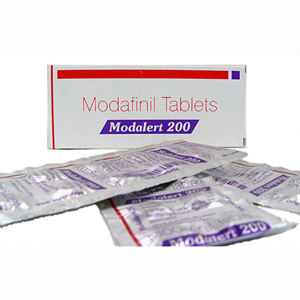
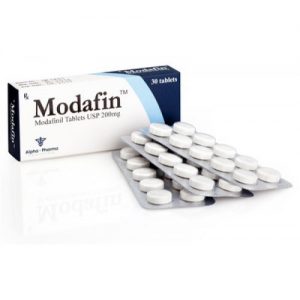
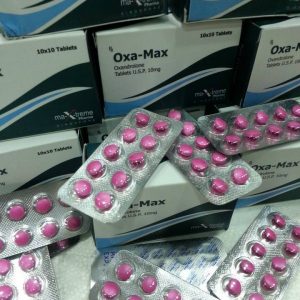
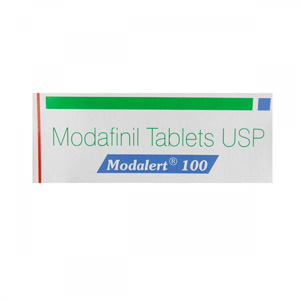
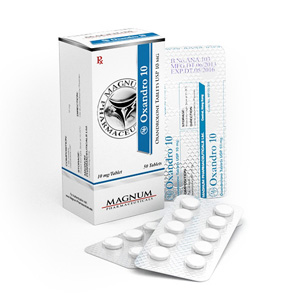
Reviews
There are no reviews yet.